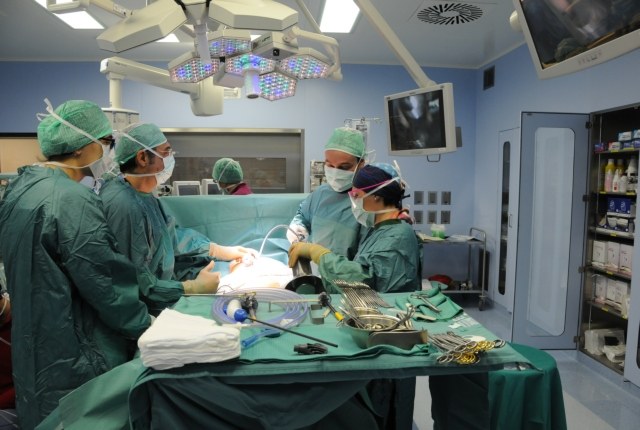The project focuses on developing an AI model capable of redesigning a healthy skull, identify malformations and propose the necessary modifications needed for the surgeon to perform the best possible customised reconstruction operation.
More specifically, the algorithm was developed by experts from the Maxillofacial Surgery IRCCS (Scientific Institute for Research, Hospitalisation, and Healthcare), led by Professor Achille Tarsitano, in collaboration with the Department of Computer Science and Engineering at the University of Bologna, headed by Professor Luigi Di Stefano. The software uses this algorithm to automatically generate customised reconstructions of facial skeletons deformed by oncological, malformative, traumatic, or other conditions. Surgeons can then use these models to prepare for the actual reconstruction procedures in the operating room.
"Having a customised 3D project allows us to provide patients with the best possible reconstruction" – explains Prof. Giovanni Badiali, surgeon and creator of the project – This is especially critical when operating on the face, where both structure and function are essential".
"This project is the first of its kind in Italy – says Badiali – a clear demonstration of how significant and ahead of its time the collaboration between surgeons and engineers can be. This way, the experience in the operating room, professionalism and the best technologies merge, opening new horizons with significant impacts on patients’ lives".
Each year, approximately 200 reconstructive surgeries are performed at the IRCCS, andover 700 patients with various facial conditions receive treatment. Each case is carefully studied using digital technologies allowing for the 3D reconstruction of the skeletal anatomy, enabling personalised planning of surgeries, reconstructions, or implants. Integrating this algorithm into the care process will significantly reduce timeframes for diagnosis and surgical planning, ensuring therapies are increasingly precise and personalised.
Thanks to the collaboration with the group from the Centre of Anatomy of the Department of Biomedical and Neuromotor Sciences of the University of Bologna, led by Professors Lucia Manzoli and Stefano Ratti, innovative AI-based teaching methods will be developed to train the next generation of surgeons.
The project has been recently awarded in Rome, during the 27th Congress of the European Association for Cranio Maxillo Facial Surgery, which hosted nearly 3,000 representatives from around the world.

